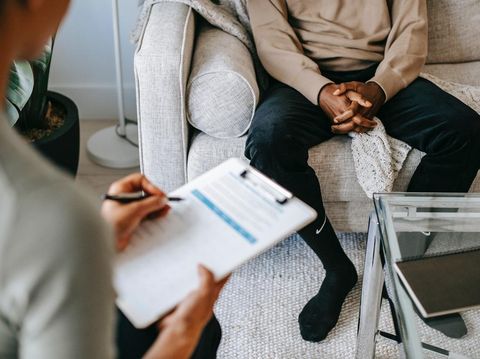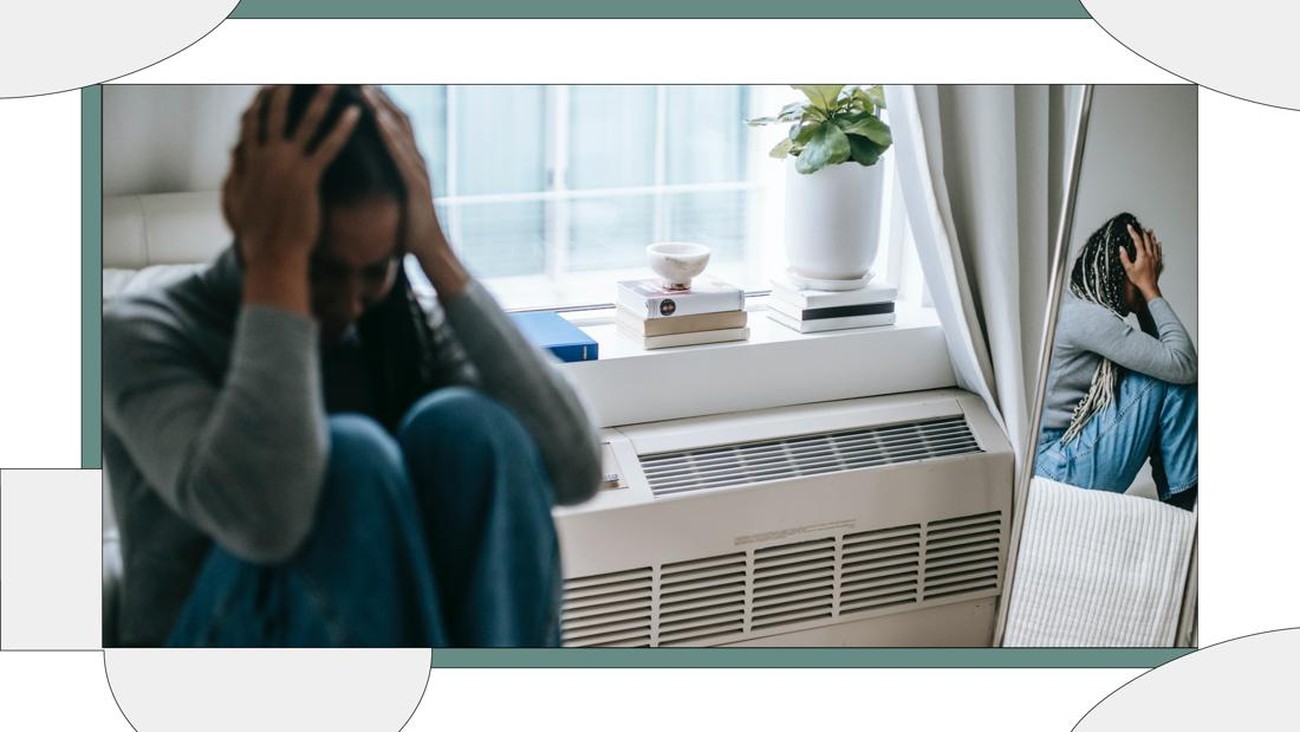For many, anxiety and fear may be just fragments of emotion, which they can overcome easily, and wouldn't interfere with their lives. For others, however, this kind of feeling is simply unpleasant. To be constantly worried, full of negative thoughts, or even experience panic attacks. Sadly, it takes a long process and (sigh!) money just to finally feel well.
For me, having anxiety is not something that I can overcome well. To make friends with years full of worries made me continue to learn how to calm myself under any conditions. Especially at work, I'm working in a field surrounded by high levels of stress and dynamics. I don't remember the first time when I experienced my first anxiety symptoms. But for sure, in middle school, I had panic attacks and had to deal with doctors at such a young age. In my brain, there's a lot of twisted thoughts and worries that have not (or maybe won't) happen, other people's opinions of me that might not be real, or weirdly even thoughts of someone else's life that are not even my business.
I am certainly not the one who experienced things like this myself. There may be millions of people in the world experiencing similar diseases like mine. Where did this fear and anxiety come from? Let's find out.
 Ilustrasi Cemas/ Foto: Andres Ayrton/Pexels Ilustrasi Cemas/ Foto: Andres Ayrton/Pexels |
Anxiety Disorder and How to Live with It
Based on 2018, Basic Health Research (Riskesdas) data in Indonesia, the prevalence rate of emotional and mental disorders experienced a 9.8 percent increase over 2013. Most sufferers are communities of productive age, and the most common psychiatric disorders are anxiety disorders of more than 8.4 million people. Again, where did it come from?
As reported by the Mental Health Foundation, fear is one of the most powerful emotions. They have the most massive effect on our minds and body. Fear can create a strong response signal while we're in an emergency mode, for example, when we are caught in a fire or attacked by someone or drowning. It also applies when we are faced with harmless events such as exams, public speaking, dating, or being in the crowd. All of these are natural responses to perceived real threats.
On the other hand, anxiety is a word we use for some fears that usually deal with thinking about threats or something that could go wrong in the future. When caught, fear and anxiety could last for a short time or even longer. In some cases, they can take over our lives, affect our ability to eat, sleep, concentrate, travel, enjoy life, work, or even go to a mini-market near home. Many things make us feel scared. We can be frightened by trivial things like fear of balloons or fear of certain fruits.
 Ilustrasi takut/ Foto: ANTONI SHKRABA production/Pexels Ilustrasi takut/ Foto: ANTONI SHKRABA production/Pexels |
What we fear and how we respond to it when afraid can be varied for each person. So we need to find out what to do to resolve these problems, know what scares us, and make the leap. Besides the meaning of anxiety itself, this word is often used by health professionals to describe constant fear. The truth is, the way we feel when we're scared and anxious are similar due to the same basic emotions.
The symptoms of anxiety could range from heart beating and breathing faster, weak muscles, excessive sweats, stomachache, difficulty concentrating, dizziness or fatigue, losing appetite, dried mouth, to experiencing tension. For those of you with long-term anxiety, you may face some of those symptoms with more disturbing fears, you may become irritable, have trouble sleeping, get a headache, continue the work, or plan for the future.
Early humans needed a quick and strong response caused by fear because they were often in physically dangerous situations. Yet those of us living in modern times no longer face threats as often as they do. Even so, our mind and body still work in the same way that ancestors had the same reaction to sometimes unreasonable anxiety. A feeling of physical fear can be frightening in itself - especially if you experience it and you don't know why or if it seems disproportionate to the situation. Instead of warning you of danger and preparing you to respond, your fears can also arise for any perceived threat, which can even be imaginary.
Handle anxiety disorder appropriately
Fear may be a feeling that arises just once when we are faced with something different. Some people feel constant anxiety all the time, without any particular trigger. There are many fear triggers in everyday life, and we can't always know exactly why we're afraid, or how likely a loss we're going to feel.
Even you may not be able to see the proportional degree of your fear. But on the other hand, the emotional part of your brain keeps sending danger signals to your body. Until eventually, you who are overwhelmed by unexplained fear have panic attacks such as difficulty breathing, muscles unable to move, or more dangerous conditions are heart attacks. Therefore, we need to know how to calm ourselves appropriately so that things we don't want don't happen.
 Ilustrasi menghadapi anxiety/ Foto: Alex Green/Pexels Ilustrasi menghadapi anxiety/ Foto: Alex Green/Pexels |
1. Breathe
When anxiety symptoms hit, you may tend to take quick and shallow breaths. It can make your brain think that you're in danger and that your body reaction won't go back to normal. That's why taking a long, deep, and soothing breath will make you calmer.
There are various breathing techniques to help you calm down. One is three-part breathing. Three-part breathing requires you to take one deep breath and then exhale completely while paying attention to your body.
2. Be aware that you are anxious or angry
Allow yourself to realize that you are not doing well. When you label feelings and allow yourself to express them, the anxiety and anger you experience will decrease on your own.
3. Challenge your thinking
Part of anxiety or anger is having irrational thoughts that don't make sense. These thoughts are often the "worst scenario". You may be stuck in a "what if" cycle, which can cause you to sabotage many things in your life. When you experience any of these thoughts, stop and ask yourself if it happened, something that makes sense, or how you address that problem. Don't let any negative thoughts continue to surround you.
4. Let go of your anxiety
Put out your emotions in healthy ways, such as exercising, taking a walk, or running. Physical activity, however small things, can release serotonin to help you calm down. It is best to avoid physical activities that express anger, such as punching a wall or shouting.
5. Relax and write
When you are anxious or angry, it feels like every muscle in your body is tense (and perhaps so). Practicing progressive muscle relaxation can help you calm down and concentrate. You can write a journal by shedding all your thoughts and worries while marking it with a complete punctuation mark. All of that will help dispel negative thoughts.
Making friends with anxiety disorders is far from easy-peasy, and even others may not understand you. But in the right way and with professional therapy, it will help you escape from one of these mental disorders. Be assured that you are just like everyone else and that you are well.



